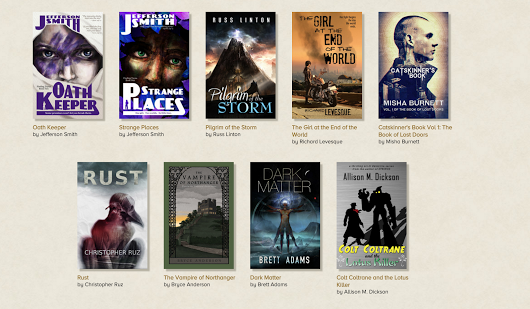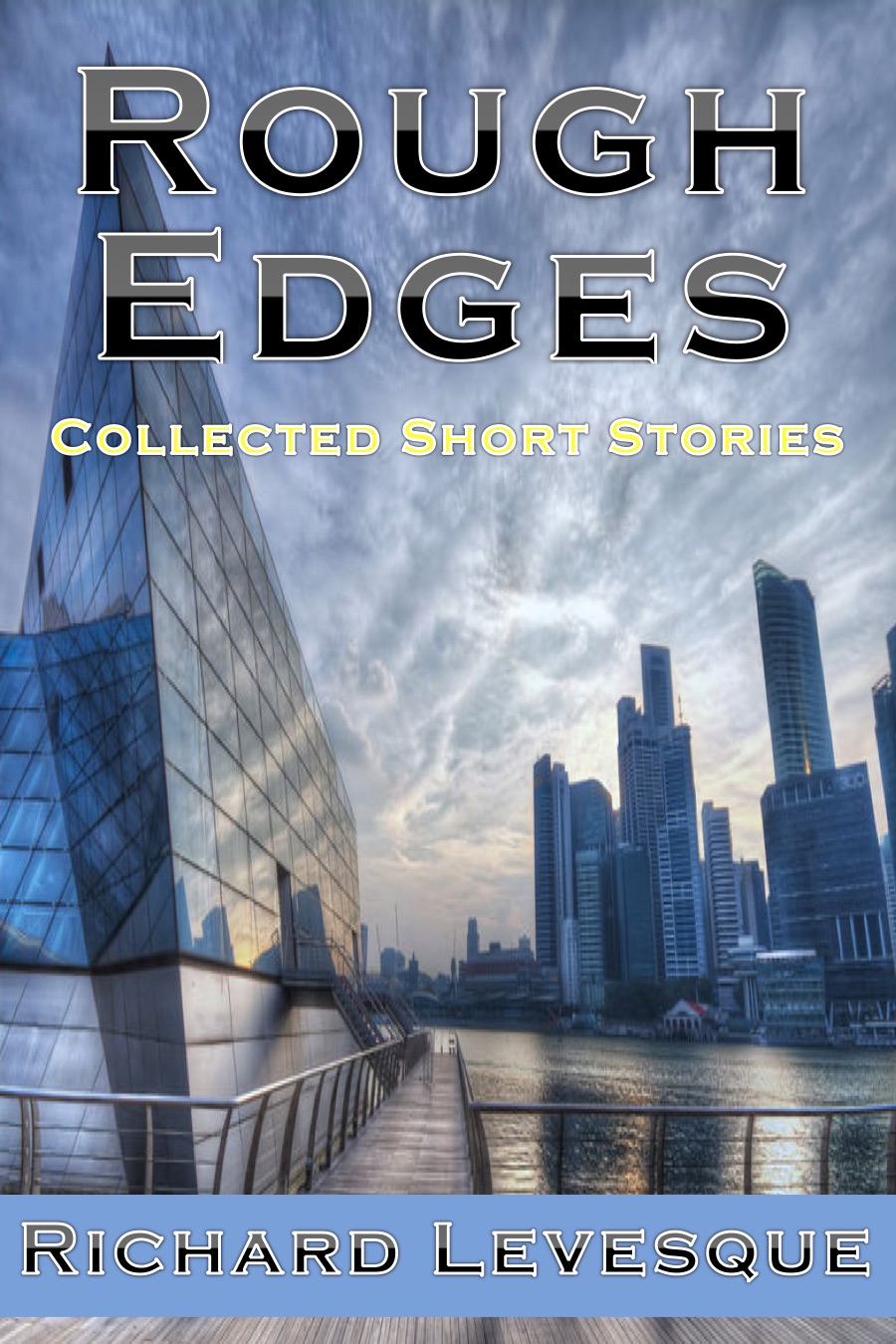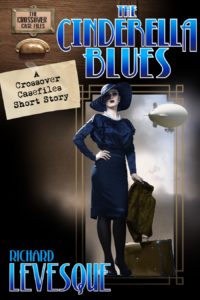Is Immerse or Die the New BookBub?
 Photo Credit: Tony Webster
Photo Credit: Tony Webster
When it comes to promoting one’s books, I think most indie writers have a love/hate relationship with BookBub, a site that charges a LOT of money to promote free and discounted books to a very large list of subscribers. The results: very good return on one’s investment and intense competition among writers to get those coveted advertising slots. BookBub has managed to build such a large list because they don’t take just anyone’s books (unlike a lot of other book promo sites) but rather claim to select only books that are going to satisfy their subscribers–books with compelling writing, professional-looking covers, solid editing, strong reviews, etc. It’s not only difficult to get in because of the competition, but also because one needs a high quality product that, frankly, a lot of indie writers don’t have.
So, the love comes in the form of the money to be made when one’s number comes up on the BookBub wheel of fortune, and the hate grows out of the frustration many writers feel at BookBub-rejection-after-rejection, with no real explanation of why one’s book failed to make the cut.
I was lucky enough to have Strictly Analog accepted for a promo a couple of years ago, and the results were phenomenal. Since then, I haven’t been so lucky and actually stopped trying to get in sometime last year when I found out that most of the slots for discounted books were going to traditionally published authors, not indies like it used to be. Conventional wisdom suggests that one has a better chance of getting in with a free listing as an indie, but there are other problems with setting one’s book up for free that I’m not going to get into here.
Taking a look at BookBub’s site these days, I see books by Dennis Lehane, John Irving, George R.R. Martin, Nora Roberts, etc. If those people (or, rather, their publishers) are submitting to BookBub, the indie writer doesn’t really stand a chance. What’s more, I hear from people who do subscribe to BookBub (I’m not among them) that some of the selections are terrible. For indie writers, it’s tough to see the traditional publishers gobbling up this part of the market, and it’s also tough to see that one’s complex, character-driven indie novel has been passed over by BookBub’s editors in favor of the latest werebear romance.
In theory, BookBub makes a lot of sense: guaranteed high quality books (indie or otherwise) at a discount price; the site’s highly selective nature sets it up as an effective gatekeeper; subscribers benefit, as do the deserving writers. Unfortunately, like most theories, it doesn’t hold up in practice. The good folks at BookBub are ultimately in this to make money, and not just on advertising fees. If they can make x dollars on affiliate sales of an indie writer’s book, they can make x times several thousand on affiliate sales of a deeply discounted Dan Brown book. And so those are the books that get accepted, and quality sometimes loses out to the bottom line. Worse, the indie writer who submits and gets rejected never finds out what, if anything, was wrong with his or book–other than the fact that it wasn’t already ranked #1 in its category.
There is an alternative, though. It won’t necessarily lead to BookBub-style sales, but it also doesn’t have a BookBub-sized price tag on it. In fact, it’s free. I’m talking about Immerse or Die, the review system dreamed up by fantasy writer Jefferson Smith. Indie writers submit their SF, fantasy, and mystery titles to the site; every morning, Jefferson selects a book and gets on his treadmill for a 40 minute walk. If the book causes him to lose immersion, he flags the problem as a WTF, maybe caused by editing errors or character inconsistencies or just poor writing. At the third WTF, he pulls the plug on the book and writes up his report. When a book goes the  full 40, it’s lauded as a Survivor, and the report goes out to Jefferson’s followers.
full 40, it’s lauded as a Survivor, and the report goes out to Jefferson’s followers.
Many Survivors report an uptick in sales, and several IOD followers say they purchase all the surviving books. So that’s definitely a plus for the indie writer–again, it’s not BookBub style money, but what really is?
There are several other benefits to writers, including the fact that one can actually learn a bit about writing from Immerse or Die. Finding out what causes readers to lose immersion in one’s story is HUGE, and reading even a few IOD entries can be an education to both new and seasoned writers. If one’s book gets too many WTFs, a writer now has the opportunity to go back in and revise, an opportunity no one gets after reading a BookBub form rejection because rejected writers never know why their book was passed over. Furthermore, because Immerse or Die isn’t huge and connected to the corporate world, the reports actually forge links within writing communities as readers and writers discuss the results of the treadmill.
There’s also a benefit to readers: people who subscribe to IOD reports get to find out what’s good in the indie SF, fantasy, and mystery worlds; they also get to find out what to avoid, so the gatekeeper element of BookBub is still in play here. Unlike BookBub’s lists, the books aren’t discounted as part of the IOD report, but it’s easy enough to follow an author who’s survived the treadmill and watch for discounts, if that’s what one is really after. Most readers, though, are looking for good books, and most are happy to pay a fair price to read them.
An additional benefit for some Survivors, though, comes after Jefferson finishes his reading of the surviving books. Many of the books that keep him immersed all the way to the end are gathered together and offered in the Immerse or Die Story Bundle, a special promotion in which the books are offered to readers at the price they select for a limited time. As luck would have it, the 2016 IOD Story Bundle is going on right now, so readers and deserving authors are benefiting, just like they would be doing at BookBub if the slots weren’t being filled by the offerings of traditional publishers…oh, and those werebear romances, too.
The 2016 Immerse or Die Story Bundle–Set Your Own Price
Indie Fiction Guaranteed Not to Suck
Bargain Books BookBub Dan Brown Dennis Lehane fantasy George R.R. Martin Immerse or Die Jefferson Smith John Irving Nora Roberts Science Fiction Story Bundle








9 Responses
But it’s one guy’s opinion. I know he writes too, because you always see his books in every bundle with the lucky survivors, but that doesn’t make his opinion more valuable than any other writer’s.
True enough, Damian. In the end, reviews are affected by a variety of factors, individual taste among them. Smith gets called on the content of his reviews sometimes by people who disagree, but isn’t that true of any reviewer? The value here is for readers who have similar concerns about the quality of indie books and for other writers who want to see if their books are up to the challenge. In the end, I’d rather have “one guy’s opinion” affecting what potential readers think of my book than the corporate-think bottom-line mentality that seems to steer BookBub’s editorial choices. Others will see it differently.
I figure every time somebody makes a book recommendation, they’re claiming a bit of gatekeeper status. Jefferson Smith is making more noise about it, and being unusually systematic about how he manages his gate.
But in the end we’re all free to decide which gates we trust enough to use.
I’ve had great luck with IoD, both as a publicity outlet (two-time survivor, that’s me, brag brag brag) and as a source of new authors and books. If you try it and decide the books he recommends are crap, then he’s not your Book Yoda.
If there’s anything that makes his opinions more valuable than most, it’s that he’s approaching it with unusual transparency, and putting in the work required to run a prolific review shop. Not many of our fellow writers have taken 300+ books for a test drive, so you’re comparing the value of his opinion to the hypothetical value of “any other writer” in the event that they went through the trouble. :: shrug ::
If his style works for you, so be it. I’ve found I categorically disagree with him on what makes a book immersive, and have LOVED some of the books he’s sent to the chopping block. I’ve also heard others say some of the books that pass IoD aren’t that great. So, like many other aspects of writing, it’s entirely personal.
I’ve submitted my books knowing full well they wouldn’t go 40 minutes, but hoped other people who disagree with Jefferson might try them out BECAUSE they failed IoD. There are some gems that he fails over pretty nit-picky details, and I daresay many readers don’t have the same standards.
You’re right, Ryan. The answer to “what makes good writing?” is highly subjective. Like any critic, Smith might very well be wrong sometimes.However, it’s the transparency of the reviews that really appeals to me and, I think, a lot of other readers. It sounds like you’ve found a way to make IoD work for you in new and different ways.
I agree about the value of the transparency, Richard. If writing is large part craft, I want to know as many of the aspects of that craft as I can (wherever they are on the spectrum of hard-and-fast to a matter of taste). The alternative is to hope to be visited by a Muse (or indigestion), and the process and result becomes that much less open to investigation.
The ability to easily comment inline at the word level is one of the reasons I love Scribophile’s setup. You can trace a reader’s thoughts, and often see what caused them to lose track of your narrative.
“I sometimes think that writing is like driving sheep down a road. If there is any gate open to the left or the right the reader will most certainly go into it.” — C.S. Lewis
Good points, Brett. I haven’t tried Scribophile but will check it out. I like the sheep analogy, too. The sheep passing through that gate is the same as losing immersion on a treadmill, I suppose.
Bookbub is a bait and switch operation. The majority of their books are first in a series, and you can download the first for free. But if you want to continue reading the rest in the series then you’re forced to buy them. Rarely do I find a book I’m willing to purchase to keep, even by authors I enjoy such as Nora Roberts. I don’t want to buy a book, because I don’t want to keep it or reread it, especially those on BookBub. Most aren’t very good and are only tolerable as something to pass the time.
That’s an interesting take on it, Crystal. I know that some of the books that are reviewed at Immerse or Die are the first in a series also, but certainly not the majority. Unfortunately, if you’re looking for things along the lines of Nora Roberts, you probably won’t find them at IOD since it’s mostly science fiction, fantasy, and mystery. Still, it’s worth checking out. Definitely some entertaining reads profiled there. Thanks for reading and taking the time to comment.
Comments are closed.